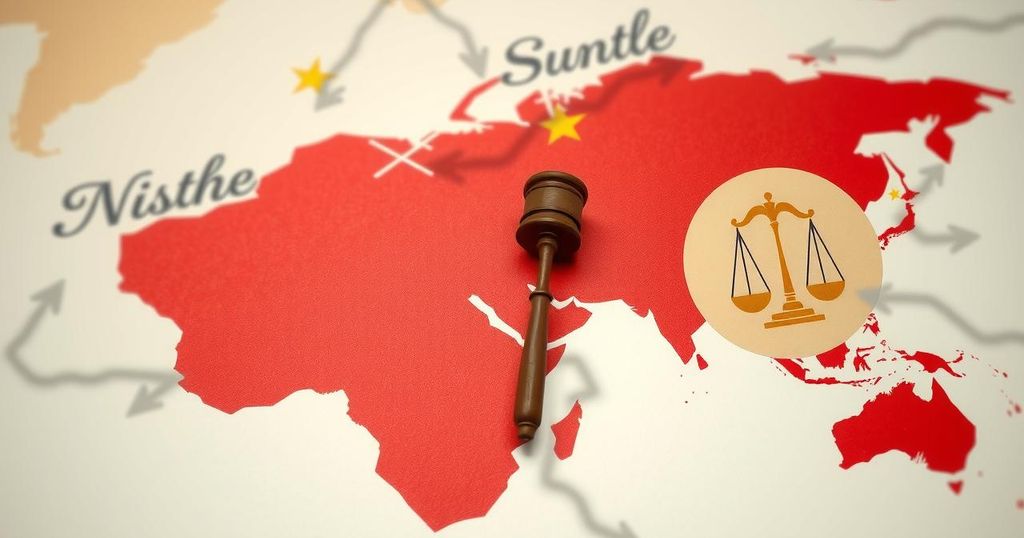President Trump declared that the U.S. can “take” Gaza, suggesting other countries should absorb Palestinians. This statement prompted a cautious response from King Abdullah of Jordan, who emphasized the need for broader discussions with Arab nations. Trump’s comments reflect ongoing pressures related to Gaza’s future amid previous rejections from Jordan and Egypt.
On Tuesday, President Donald Trump stated that the United States has the authority to “take” Gaza during a meeting with King Abdullah II of Jordan, emphasizing that other regional nations should accommodate the Palestinian population currently residing there. Trump claimed, “We will have Gaza. It’s a war-torn area. We’re going to take it. We’re going to hold it. We’re going to cherish it.” These remarks were made amid growing tensions and discussions regarding Gaza’s future.
In the Oval Office, the president’s comments placed pressure on King Abdullah, who had been diplomatic in his endorsement but refrained from endorsing Trump’s proposal. Instead of opposing the notion of forcibly relocating Gazans, the king suggested that Jordan and the U.S. consult with other Arab nations, including Egypt, to address the potential resettlement of the displaced population.
This meeting follows Trump’s previous week declaration of intentions to control Gaza, seeking cooperation from Jordan and Egypt to resettle approximately two million Palestinians. However, both nations previously rejected this idea during a press conference with Israeli Prime Minister Benjamin Netanyahu. Despite Trump’s insistence, King Abdullah did not directly engage with the contentious topic during their bilateral discussions.
In summary, President Trump’s assertion regarding the U.S. authority over Gaza and the displacement of Palestinians has sparked significant diplomatic discourse, particularly with King Abdullah of Jordan. While Trump remains firm on the idea, Abdullah has advocated for broader consultation with other Arab states to address the implications of such proposals. This situation continues to strain diplomatic relations as regional leaders navigate the sensitivities surrounding the Palestinian issue.
Original Source: www.nytimes.com




